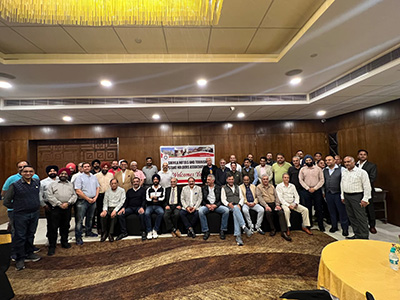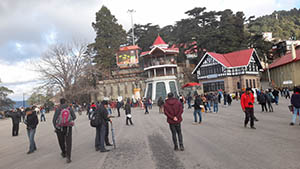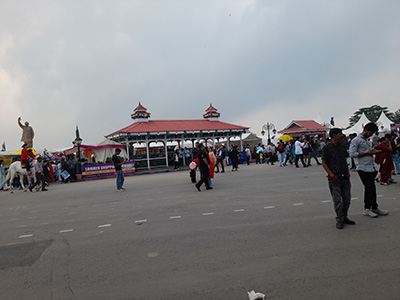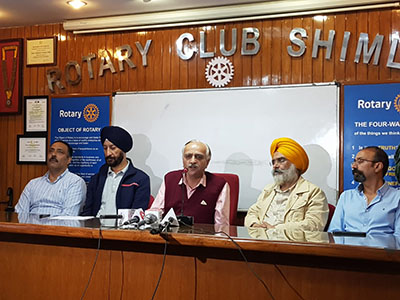SHIMLA: The hoteliers and tourism stakeholders have blamed the local authorities for plunging the capital city of into chaos, as roads remain unattended and drainage systems shattered. As a result, capital's tourism industry has been pushed into a deep crisis since July 7.
This negligence, coupled with ongoing smart city projects that have left debris littered on roadsides and hillsides, has led to water seepage, resulting in disastrous landslides that have brought the bustling tourism industry to a screeching halt since July 6, 2023.
SHTSA and The Mall Road Businessmen Association joined hands blaming the negligence on the part of the Smart city project authority and municipal corporation and local administration and National Highway Authority of India(NHAI).
Talking to the media here today Shimla Hotel Association and Mall Road Businessmen Association asserted that the livelihoods of countless stakeholders hang in the balance - hotels, restaurants, shops, taxis, horse riding operators, photographers, guides, and more.
With tourism contributing a staggering 7.8% to the state's GDP, the urgency of the situation cannot be overstated, said Mohinder K Seth, President of Shimla Hotel, Tourism Stakeholders Association(SHTSA).
Shockingly, despite this dire situation, basic infrastructure such as the crucial Kalka-Shimla national highway (NH 5) remains unfinished even after a decade.
The government's commitment to completing the roadwork promptly must be reinforced before the upcoming season to avert the crisis in the near future.
As financial woes grip the tourism stakeholders, the state government's declaration of the crisis as a State Disaster brings some relief.
However, the real rescue lies in proactive measures to salvage the sinking industry. Urgent appeals to lead banks are necessary to secure loan deferments and soft credit lines, preventing these businesses from slipping into the dreaded non-performing assets category, they demand.
Tragically, employee layoffs loom as revenue collections has plummeted.
The urgency of reviving tourism extends beyond survival - it's also about replenishing the government's tax revenues that have been drastically affected.
The revival of train connectivity by September could breathe life into the ailing sector, accompanied by the completion of NH highway lanes for a seamless journey to popular destinations.
And as Gujarat remains a vital source of tourist influx in coming days, subsidizing road taxes for tourist coaches from other states could stimulate a much-needed rebound for the industry.
They say that innovative solutions like increased air connectivity and heli-taxis from neighboring states can further drive weekend tourism, repositioning Himachal Pradesh as a sought-after destination.
With a staggering shift towards Jammu & Kashmir, it's high time the government steps in with incentives for travel agents and tour operators, strategically redirecting the traffic towards Himachal.
The plea to both the central and state governments is clear and resounding: Take swift, effective action to rescue Shimla's tourism, a lifeline that not only employs the masses but also contributes significantly to the economic landscape.







